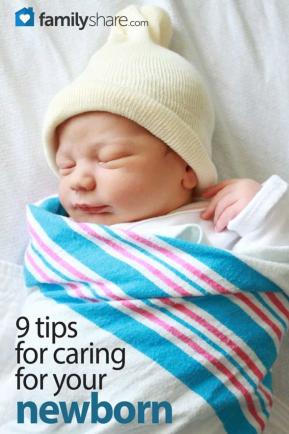
What is most important when you are preparing for your new bundle of joy?
If a parent knows what works for a baby's physical needs, that will allow time for wonderful interaction and affection. Here are the baby basics:
Share the responsibility
The care of a new baby can be stressful. Don't be afraid to ask for help. Feelings can vary from overprotectiveness to apathy and it is important to have a family member or friend to share these feelings. Have a team of helpers for you and your baby. This can include parents, babysitters, neighbors, friends and hired help. Cleaning the house, taking a shower, paying the bills and getting a break is necessary to maintain a happy home. I will never forget the time my baby daughter developed colic when I introduced formula. It was the longest weekend of my life. Thank goodness my sister-in-law was there to help me.
Improve your parenting skills
Parenting is a learned skill. You have instincts and natural intuition that is important for your baby's safety, but there is so much more to learn. The first seven years of your child's life can determine your his academic and social interaction success. Read and educate yourself as to how to recognize problems or to enhance your child's developmental skills. Some helpful books are: I'm Okay, You're a Brat, Happiest Baby on the Block, Dr. Sear's Vaccine Book, American Academy of Pediatrics: Caring for Your Young Baby, Baby Bargains andMy Baby Compass/ Birth to Two.
Dress baby for comfort at bedtime
Provide infant gowns with fold over cuffs, kimono tees, onesies and footed sleepers. Have at least four of each of these. Infant socks, caps and fleece zip ups may be needed depending on the temperature when you go outside. A fleece swaddle me is helpful to keep baby secure at bedtime. Have baby sleep face up, supported by rolled receiving blankets or a foam mold due to a concern of Sudden Infant Death Syndrome (SIDS). If you have questions, ask your health care provider.
Prepare for diaper blow outs and clean ups
Fitting a diaper so there are no leaks is an art. Diaper baby with cloth or plastic diapers that fit correctly by checking the size. Placing a heating pad under the changing table and using a wipe warmer makes baby very happy while changing the diaper. Think about it, baby is warm and content and then you wipe him with a cold towel and you wonder why he cries?
Don't leave the house without having a diaper bag supplied with diapers, cream, change of clothes, wipes, a rattle and bottles for on the go. Use receiving blankets for swaddling, laying on the changing table or while nursing to help with those sudden clean ups. Cloth diapers make great burp rags to keep your clothes clean from those unexpected spit ups.
Monitor baby's health and wellness
An important skill you can learn (but hopefully will never have to use) is CPR and first aid training. Call the American Red Cross or ask your health care provider where you can attend a class. I have saved an adult and a baby by knowing how to perform CPR.
For baby's daily care, use a bulb aspirator to keep baby's nose clean, an under the arm thermometer to take baby's temperature and Gripe Water if baby's tummy is slightly upset. Hydrocortisone cream with aloe works for bad cradle cap but check with your health care provider to make sure that is the problem. When out of your baby's room, use a baby monitor that is either battery operated or with an AC adapter to allow you to hear what baby is doing.
Travel safely with baby
Place baby in a safe car seat and use rear seat mirrors to monitor your baby in the back seat. Make sure the car seat you choose meets safety specifications. Other convenient items include: Pack-n-play, a stroller or jogger (some come with an adapter car seat which is very convenient). When staying in a hotel, portable cribs can be dangerous. Check all cribs and any products you buy to make sure there hasn't been a manufacturer recall.
Fun baby trappings
Baby swings and bouncy chairs provide movement to help soothe baby. Rattles, teething rings, silky blankets and stuffed animals provide texture to help baby learn about his environment by exploring these items with his mouth and hands. Mobiles, baby mirrors and light activated toys improve baby's vision. Sound activated toys can improve baby's cause and effect responses. If baby touches a sound activated toy, he hears a sound and he will then realize he was the reason the toy made the sound.
Talk, read and sing to your baby
So now that we have met all of your baby's physical needs, the most important thing you can do is to talk to your baby. While you are dressing, bathing or playing with baby, talk as if your baby couldn't see and you are describing everything you are doing. Why is this important? That is how baby learns to make sounds, understand words and identify simple gestures or baby signs. Even if you aren't a good singer, baby will love your voice. Music can soothe a fussy baby and it can be fun for you too.
Record your child's developmental milestones
With 1 out of 50 children diagnosed with autism (CDC, Atlanta), 9 out of 10 children experiencing a temporary hearing loss (American Speech and Hearing Association) and 2 out of 10 children diagnosed with a developmental delay, it is important that a parent understand what milestones a typical child should be able to achieve. Record your child's developmental history because if there is a delay, your health care provider will want details about the progression of those developmental milestones.
Remember, stay calm, be happy, give lots of kisses and hugs, trust your intuition and don't worry.

